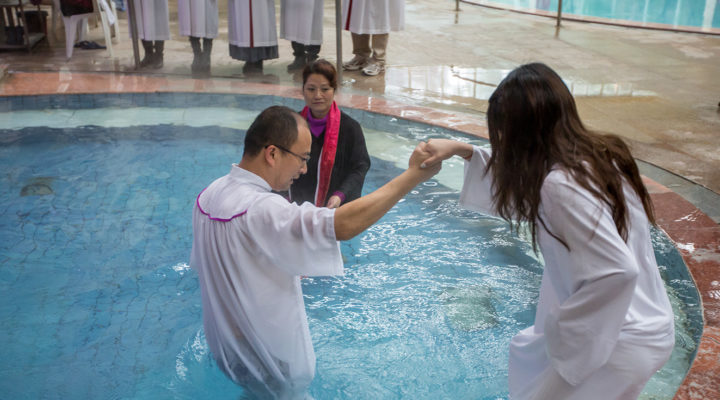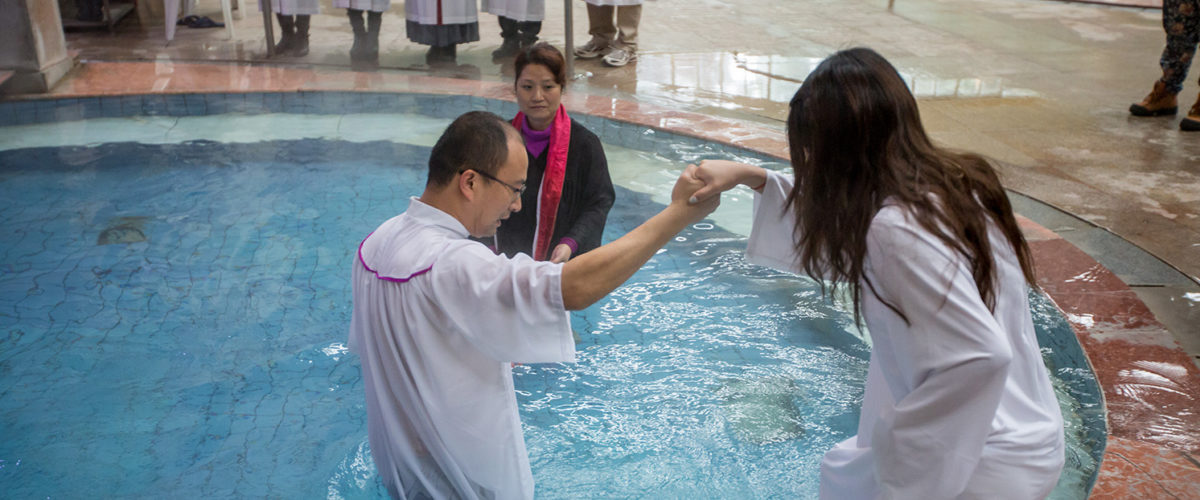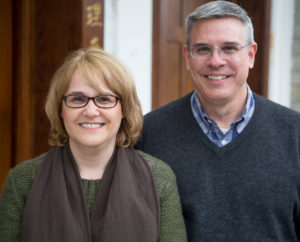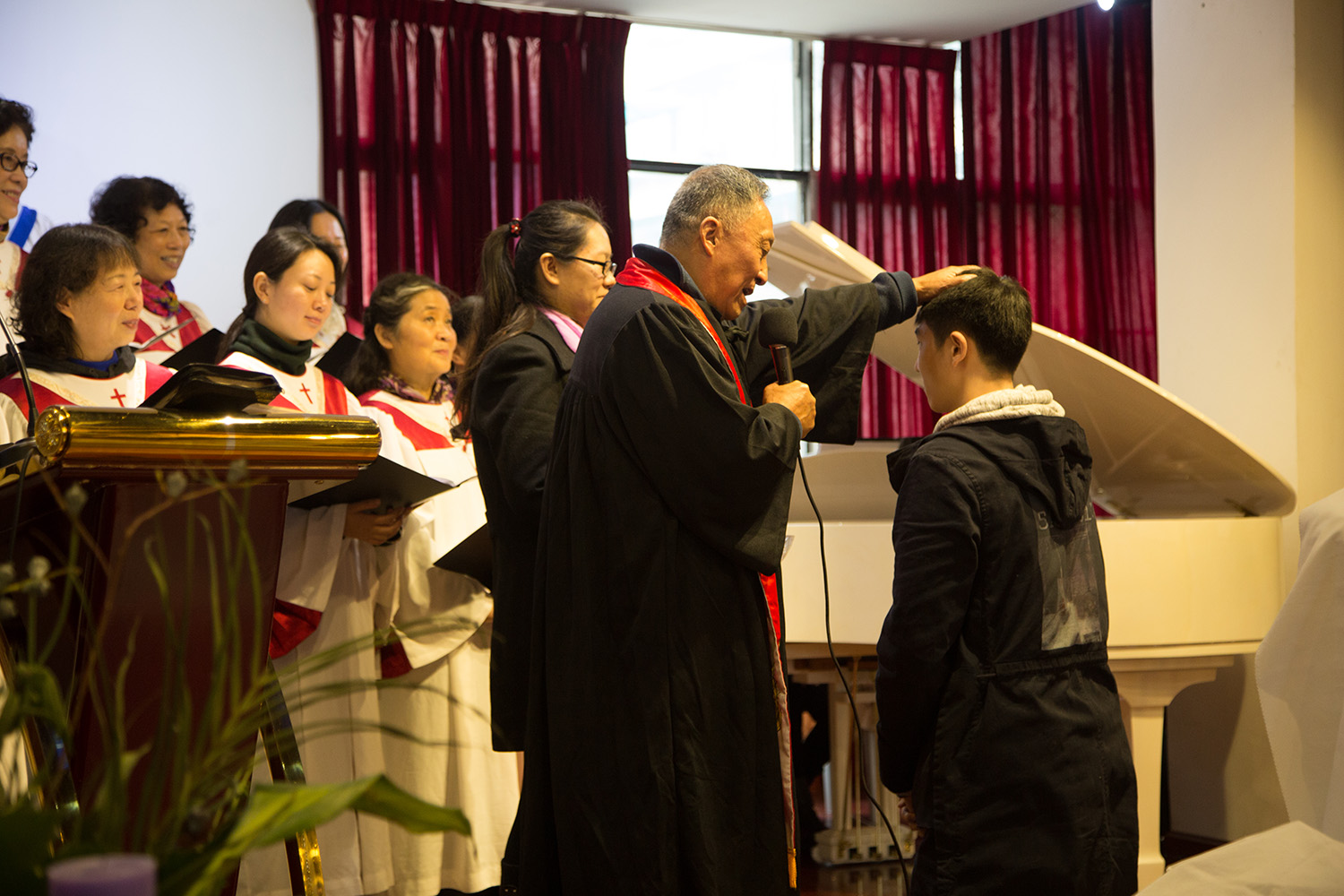There are already thought to be more Christians in China (100 million) than members of the Communist Party (87 million). In fact, over the next 15 years, China is on course to become the nation with the world’s largest Christian population.
On a humdrum Sunday last summer — the kind when most American churches struggle to fill their front pews — the Thanksgiving Church in Chengdu baptized 55 people. Among them were senior adults, 20somethings, young children and one person with a physical disability.
Li Xia, a deacon at Thanksgiving Church, recalled her own baptism on Easter Sunday in 2008, saying she was moved her to follow Jesus. Ultimately, being a Christian is a journey of bearing witness to Christ in community, she said.
“I could feel God’s love and guidance,” Ii Xia said. “But the most joyful thing for me is to live in the family of the church, to serve God together with my brothers and sisters, to see more people come before the Lord.”
That family is a partnership between Chinese Christians and Cooperative Baptist Fellowship field personnel Bill and Michelle Cayard, who founded Thanksgiving Church a decade ago. With support from the CBF Offering for Global Missions, the Cayards are planting churches, training pastors and lay leaders in Chengdu.
While many parts of China continue to struggle with access to basic resources, Bill Cayard said, the economic growth that the country has experienced over the past 30 years has positioned the church in a unique way, namely as a source of spiritual growth rather than economic development.
“Transformation here is about giving people an opportunity for a different hope in their lives,” he said.
Economically, today’s Chinese citizens enjoy better lives than the generations that have gone before them. Their material lives are improving daily, he said.
That opens the door for spiritual growth.
“Our ministry with people in China is about … hope beyond material existence, hope beyond dreaming that one day they will own their own home, hope beyond dreaming that one day they will own their own car,” he said. “Here, the message of Christ is relational and fills a void in people’s lives that they often never knew existed.”
For Bill and Michelle Cayard, ministry here began a decade ago when the couple began meeting Chinese pastors and other Christians through a local service organization where they taught English. What began as simple relationships and Bible study blossomed into a full partnership toward planting a church in Chengdu.
Months of prayer and planning for structure and leadership finally culminated in 2007 when the Thanksgiving Church was officially commissioned. Where 30 members once gathered at their shared worship space in Chengdu, 600 now fill the seats on Sunday at Thanksgiving’s three sites.
For the Cayards, however, growth is not about creating static church-goers. It’s about continually equipping new leaders for the church across Chengdu and the entire country.
In addition to being baptized and becoming a deacon, Li Xia also spent two years in the theological training program spearheaded by the Cayards to resource indigenous church leaders. She believes equipping the church with theological knowledge helps it become a better witness to God’s work in China.
“Many people are blind. Many people are tied. Many people are not free. Many people are suffering,” Li Xia said.
When the Cayards first began partnering with Chinese pastors in Chengdu, they realized there were simply too few of them, Michelle explained. In most parts of China, she said, the church is beginning to outgrow the number of trained pastors available to help lead.
In the Sichuan province of 100 million people, a mere 25 pastors graduate with theological degrees each year. Moreover, aspiring pastors in Chengdu are often forced to leave their homes and families to receive master’s level theological education in other cities or countries.
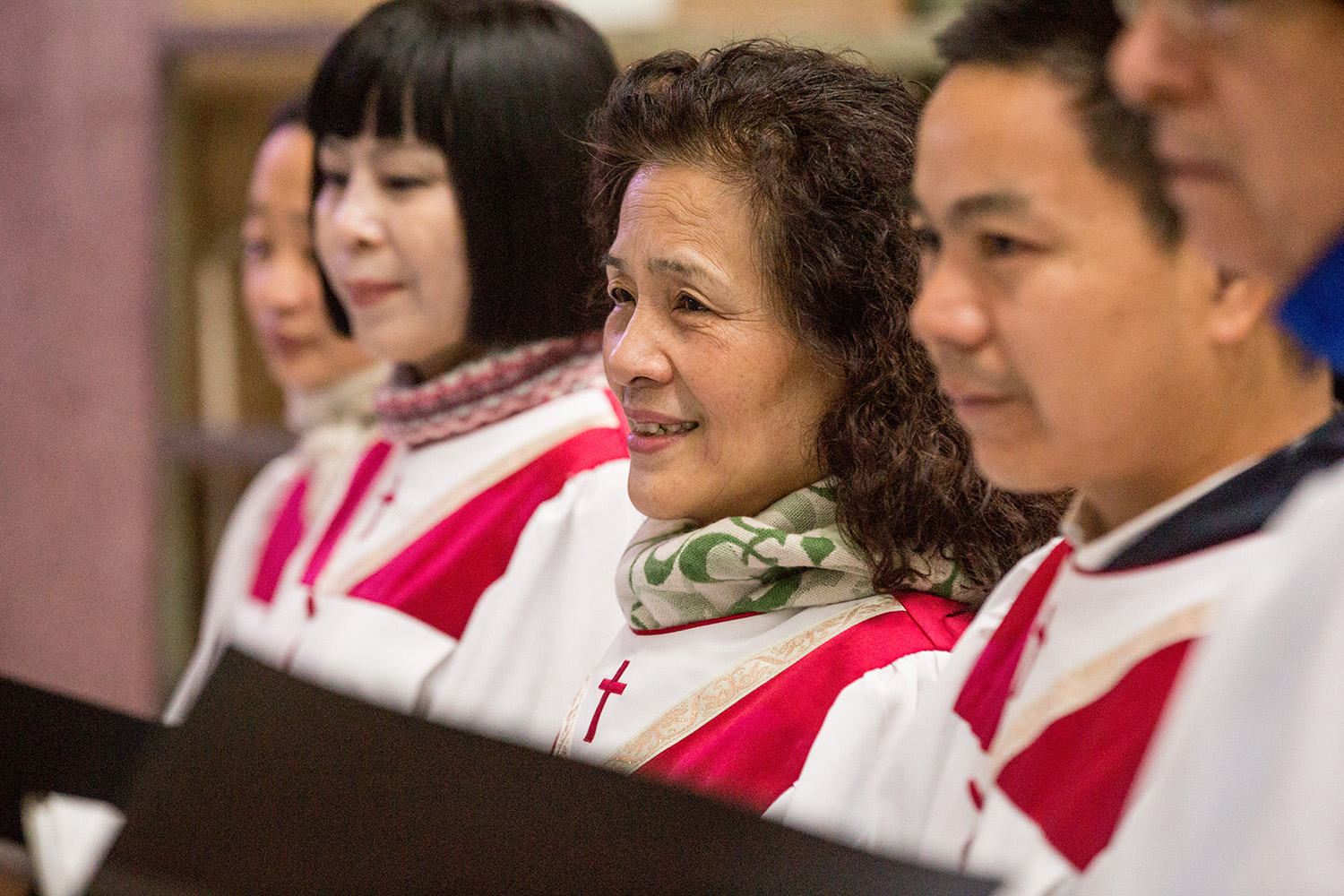
Churches are being planted rapidly all over China, but congregations struggle to find pastors to lead them. (Photo/CBF)
With so many bi-professional pastors and lay leaders in need of theological training, the couple began partnering with CBF and B. H. Carroll Theological Institute to offer seminary classes in Chengdu. With support from churches in the United States, the Cayards have also been able to help local Chinese congregations create their own training programs for pastors and lay leaders for church administration, Vacation Bible School, women’s ministry, music ministry and outreach.
“The work that I’m most passionate about is the equipping of leaders for the church,” Michelle Cayard said.
One of those leaders is Wu Yan, who became a pastor in the Bazhong church.
Because she and her fellow pastors help lead more than 40 churches, some in extremely remote areas, Wu Yan often begins her day at 6 a.m. and returns home after 5 p.m.
With a bachelor’s degree already in-hand, Wu Yan enrolled in the theological training with the Michelle and Bill Cayard and is now working toward a master of divinity degree.
She believes God gives her and her fellow ministers the strength to bear witness to Christ even in places people are reluctant to go.
“Why shouldn’t God’s love reach those remote villages when he can reach Bazhong?” Wu Yan said.
The original version of this story appeared at cbfblog.com.

